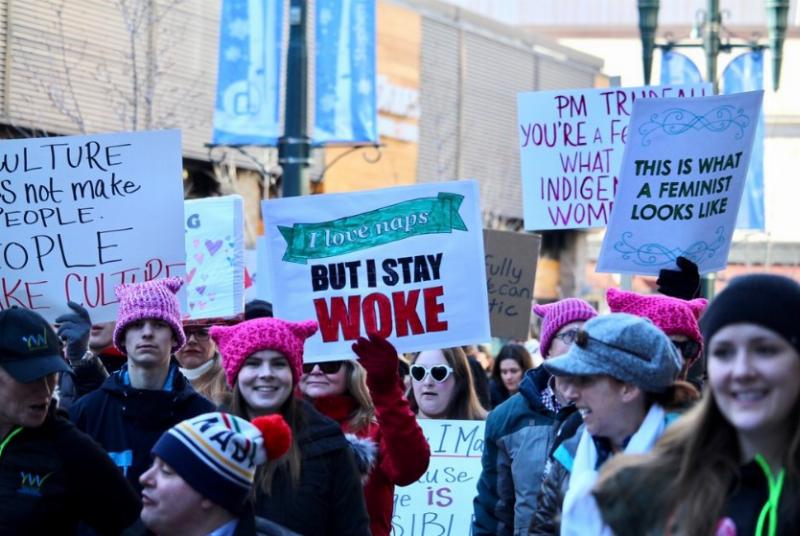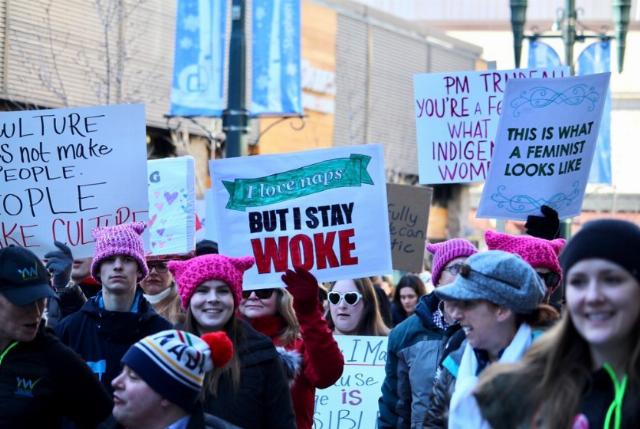


To be "woke" is to overzealously pursue moral purity while stifling free expression and distorting social priorities. “Wokeness" arose like a contagion from social justice activism and now struggles to sustain itself. It is, hopefully, dying due to its own internal contradictions and rejection by society at large.
Wokeness supposedly involves an acute awareness of perceived moral or social injustices, often tied to identity politics, where issues like race, gender, and sexuality dominate discourse. This hyperawareness, however, has developed into a rigid ideology that demands conformity and punishes dissent, as seen in cancel culture and censorship. In his Davos speech, Javier Milei called woke ideology a "mental virus" that threatens the foundational values of Western civilization -- liberty, free speech, and individual merit -- credited with lifting 90% of the global population out of poverty.
Wokeness labors under its own inherent contradictions. It promotes equality while simultaneously causing division through identity-based hierarchies. This paradox alienates potential allies, as seen in cases like the Bud Light and Cracker Barrel episodes, where corporate pandering to woke drivel led to backlash and financial loss. It’s impossible to ignore the absurdities, such as the banning of certain words or cultural symbols deemed offensive, which often trivialize serious issues and provoke public ridicule. The in-your-face hypocrisy is producing a measurable decline in woke sentiment in America, with surveys showing reduced support for concepts like "systemic racism" as people tire of its prescriptive nature.
People like William Wilberforce and Martin Luther King based their struggles in the teachings of Christianity, and Jesus certainly had his critics. But Jesus’ questions to his detractors caused many of them to change their beliefs, and his questions were based in love. Wokesters today leave no room for dissent, and their cancel culture rises to new levels of vindictive exclusion.
Wokeness fails because it lacks a coherent moral framework and clashes with traditional values like forgiveness and redemption. One author posits that woke manipulation starts with appeals to compassion, then preys upon fear of social or civic retribution, and finally moves to force through coercive laws, encroachments on freedom, corruption of agencies and institutions, and finally violence. This “chokehold” traps its defenders in a cycle of performative virtue, where fear of being labeled "problematic" stifles honest debate. This rigidity mirrors the dogmatic control of past ideologies like communism, which collapsed under the weight of their own inflexibility.
Wokeness relies on censorship and moral grandstanding, which is a key reason for its struggles. For example, fans have criticized Disney’s Star Wars and recent Marvel projects for prioritizing ideology over storytelling. When platforms suppress content to appease a vocal minority, they alienate broader audiences.
It could be said that wokeness resembles a pseudo-religious fervor, where dissent is heresy and moral superiority is the currency. This, however, alienates even its proponents, who face constant scrutiny to maintain ideological purity. Like deprogramming ex-cult members, helping defenders of wokeness escape this chokehold requires empathy and open dialogue, not confrontation, as many are trapped by social pressures rather than genuine conviction.
Argentinian President Javier Milei’s fiery critique at the World Economic Forum framed wokeness as a global threat, infiltrating institutions from governments to NGOs and universities. He argued that it undermines the pioneering spirit that drove progress, like the Industrial Revolution, by replacing merit with identity-based quotas and silencing dissent. This institutional capture creates a feedback loop where woke policies embed power among elites, disconnecting them from the public they claim to represent.
Yet, we may be witnessing a cultural shift with the decline of wokeness. The public grows tired of the performative activism and economic fallout of "woke capitalism", like the Bud Light/Cracker Barrel debacles. People crave authenticity over dogma, which could explain the popularity of the American Eagle ad with Sydney Sweeney.
Wokeness, while ostensibly born from a desire for justice, stumbles under its own weight. People weary of its intolerance for dissent, its contradictory principles, and its alienation of the broader public. Critics highlight its lack of adaptability and an overreach that turns potential supporters into skeptics. Milei’s call to break these "ideological chains" resonates with a growing sentiment that values open dialogue and merit over rigid dogma.
As the pendulum swings back towards normalcy, the decline of wokeness offers an opportunity for more balanced national discussions.

Image: JoslynLM
